State Department Fines RTX While US Security is Compromised
Many of the Violations Happened at Rockwell Collins, now Collins Aerospace, an RTX company
The State Department has let RTX corporation off the hook on serious violations of US export control laws that resulted in the compromise of major US military systems. The transactions involved China, Iran and Russia among others and procurement of important parts for defense systems from China.
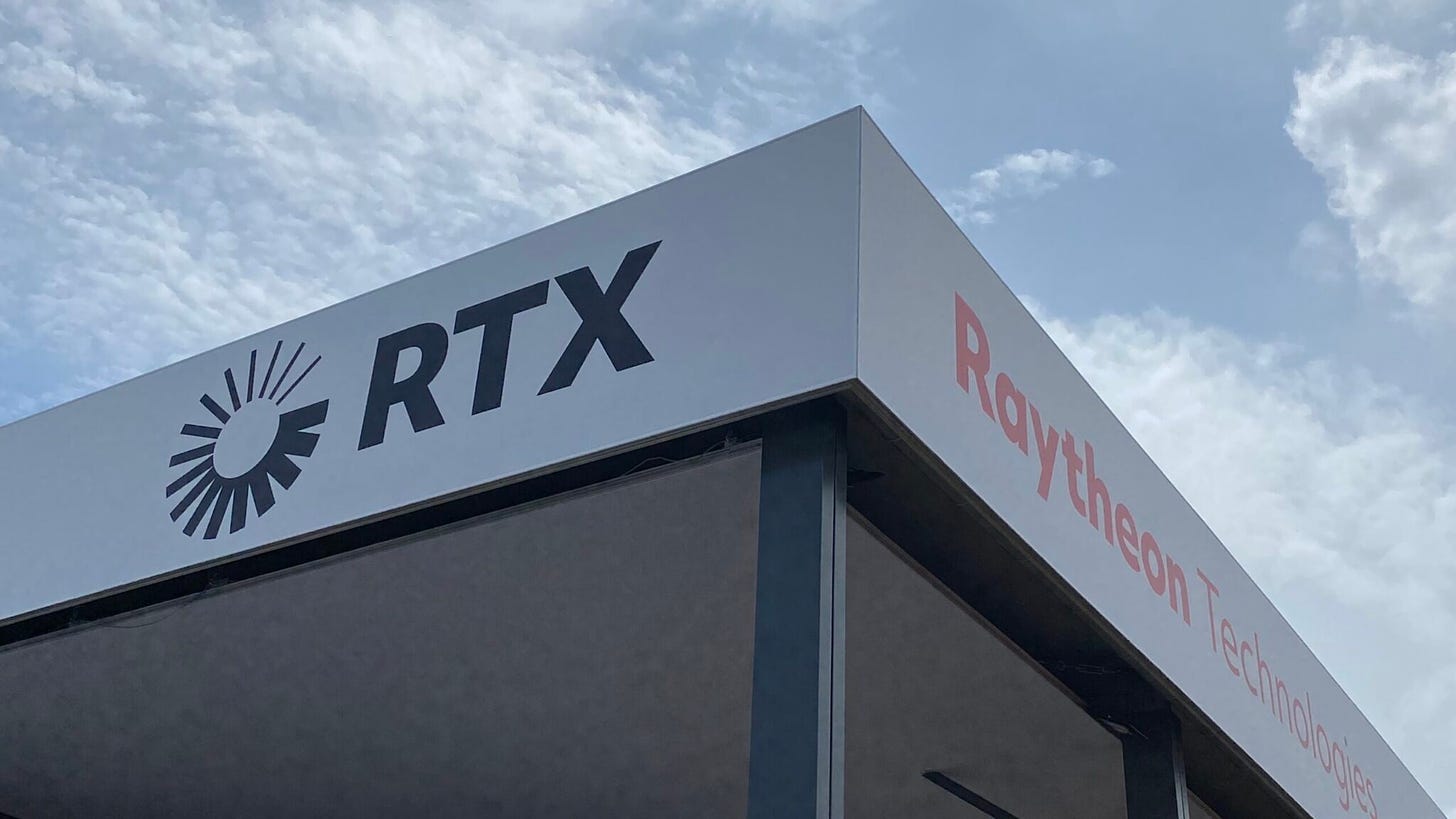
Despite reporting more than 750 violations, RTX was fined $200 million, although the real fine is only half that amount. No other action was taken. Apparently no referrals were made to the Department of Justice. No estimate was made of damages to US security. The fine is just a number pulled out of a hat and is, in fact, a meaningless action given the severity of the violations. RTX revenues are around $69 billion annually.
According to the State Department, most of the violations happened in the Collins Aerospace division of RTX, but there also were export violations in other parts of RTX.
The State Department says that its response was not harsher because the company voluntarily disclosed the violations and cooperated with the State Department on strengthening export compliance.
The violations include Iran, Lebanon, Russia and China. China was used as a parts subcontractor for US defense systems and received export controlled technical data and design information so they could manufacture components.
These transactions allowed Collins, now a division of RTX, to buy cheap and potentially inferior components from China. Collins has operations in Shanghai and is partnered with China Aerospace Systems Corporation
The US has three systems for controlling US exports. The State Department administers the Arms Export Control Act and publishes regulations known as the International Traffic in Arms regulations (ITAR). Defense companies know that most of what they produce is covered under ITAR regulation.
The Commerce Department administers Export Administration Regulations and publishes regulations known as the Commodity Control List (CCL). CCL covers includes national security, foreign policy, short-supply, nuclear non-proliferation, missile technology, chemical and biological weapons, regional stability, crime control, and terrorist concerns.
The Treasury Department administers various US export sanctions managed by the Office of Foreign Asset Controls. The US has sanctions on Russia, China and Iran. All three countries also run aggressive spying operations against the United States including extensive cyber hacking, often described as an “advanced persistent threat.”
While the above three agencies administer the programs there is sometimes overlap and controversy over categories, and there are interagency mechanisms to sort them out. In addition other agencies, most notably the Defense Department, the Department of Energy (especially for nuclear-related technology) and US Intelligence (mainly the CIA) participate in establishing technology controls, tracking adversaries, and adjudicating export license applications.
Collins Aerospace
Rockwell Collins was acquired by United Technologies Corporation (UTC) on November 27, 2018 for $30 billion and now operates as part of Collins Aerospace, a subsidiary of the RTX Corporation (formerly Raytheon Technologies). A significant part of the company's business is commercial aviation (but many of the same products are used in military aviation). In terms of defense projects Rockwell Collins was involved with the Common Avionics Architecture System (CAAS), Joint Tactical Radio System (JTRS), Tactical Targeting Network Technology (TTNT), Defense Advanced GPS Receiver (DAGR), and Future Combat Systems. Importantly, Collins Aerospace, the successor division of RTX, specializes in integrated battlefield management. As the company says, "With our long history of providing software-defined radios, gateway solutions and communication systems, we know what it will take to connect the battlespace. We’re bringing new technologies and capabilities to allied forces faster with innovative solutions that integrate legacy and new assets, open systems architecture, digital engineering and militarized commercial technologies." Collins Aerospace has revenues of $26.2 billion.
According to the State Department, since 2020 there have been 27 voluntary disclosures concerning Collins Aerospace. "In at least two cases, such unauthorized exports resulted in the manufacture of thousands of defense articles (comprising approximately 45 distinct part numbers) in the PRC [China], importation of those defense articles into the United States, and the eventual integration of those defense articles into multiple U.S. and partner military platforms. In 16 cases, Respondent [Collins? or RTX?] or its foreign affiliates exported or reexported without authorization defense articles related to military aircraft and missile system programs..." The State Department contends that most of these violations occurred before Rockwell Collins was acquired by UTC in 2018.
It is especially disturbing that the State Department took no action for four years after being informed about these violations that included purchases of Chinese products for US defense systems. Was the US military informed about Chinese parts showing up in its military systems? There is no information in the State Department report.
The State Department "Charging Document" also reveals that the US AWACS (Airborne Warning and Control System) was also compromised. "In two disclosures that Respondent initially submitted to the Department in 2021 and 2022, it disclosed unauthorized exports that occurred at Respondent’s facility in Cedar Rapids, Iowa, in the form of unauthorized releases of USML [US Munitions List, namely the ITAR] ... technical data related to the Boeing E-3 Sentry Airborne Early Warning and Control Aircraft and the Embraer KC-390 Millennium Medium Weight Transport Plane to a Chinese foreign-person employees (FPE)." There is no comment why a Chinese citizen was employed by Collins Aerospace or any other follow up regarding other Chinese employees of the company. Are these employees still in Cedar Rapids?
Collins, through its subsidiary in Shanghai, China also sought Chinese-company bids for an aluminum display housing components for the US stealth F-22 fighter bomber. At least two Collins Chinese employees were involved. Collins also also "contemporaneously and separately exported without authorization the same technical data to four entities in the PRC."
In another disclosure in 2023 RTX reported that Collins "released certain circuit card assemblies" to PRC companies. These are printed circuit boards that are covered under ITAR rules (e.g. specially designed for military use). Collins claims they were inadvertently mis-classified as falling under Commerce Department Export Administration Act rules. No information is given that the Commerce Department actually issued any license to Collins, so we are left with the impression that Collins treated the transaction as a commercial transaction not requiring an export license. The Charging Document does not reveal what defense products were involved.
According to the Charging Document Rockwell Collins also sought printed wiring circuits (printed circuit boards) from China for the following US systems:
• VC-25 Presidential Transport Aircraft (Air Force One)
• A-10 Thunderbolt II Close Air Support Attack Aircraft
• B-1B Lancer Supersonic Strategic Heavy Bomber
• B-52 Stratofortress Strategic Bomber
• C-17 Globemaster III Strategic Airlifter
• C-130J Super Hercules Military Transport Aircraft
• CH-53 Super and King Stallion Cargo Helicopter
• F-15 Eagle Fighter Aircraft
• F-16 Fighting Falcon Fighter Aircraft
• F/A-18 Hornet Fighter Aircraft
• KC-46 Pegasus Tanker Aircraft
• KC-130 Tanker Aircraft
• KC-135 Stratotanker Tanker Aircraft
• MQ-4 Triton Surveillance Unmanned Aerial Vehicle (UAV)
• MQ-8 Fire Scout UAV Helicopter
• MQ-9 Reaper Combat UAV
• MQ-25 Stingray Refueling UAV
• P-8 Poseidon Maritime Patrol Aircraft
• U-2 Reconnaissance Aircraft
The Charging Document does not reveal information about the "wiring boards" beyond saying that Collins was trying to subcontract them to China.
The company also disclosed that it reexported and retransferred to 25 countries including China items (not otherwise described) that are parts of the following military systems:
• Aegis Ballistic Missile Defense System
• B-2 Spirit Bomber Aircraft
• F/A-18 E/F Super Hornet Fighter Aircraft
• F-15 Eagle Fighter Aircraft;
• F-16 Fighting Falcon Fighter Aircraft
• F-22 Raptor Fighter Aircraft
• F-35 Lightning II Fighter Aircraft
• National Advanced Surface-to-Air Missile System
• PATRIOT Air Defense System
• Phalanx Close-In Weapons System
• RIM-116 Rolling Airframe Missile
Iran and Russia
"In March 2019, an employee hand carried a company-issued laptop, which contained ITAR-controlled technical data, to Iran. The company detected the employee’s attempt to use the laptop to connect to the internet while in Iran and initiated a “freeze” in response, restricting access to the laptop’s hard drive.
Following the employee’s return to the United States, the company determined that the laptop contained USML Category... technical data related to the B-2 Spirit Bomber Aircraft and F-22 Raptor Fighter Aircraft," according to the Charging Document. The employee's name is not included, nor what division of the company employed this person.
Similarly, in 2021 an RTX employee traveled to St. Petersburg, Russia with a company issued laptop. Unlike the Iranian laptop which the company was able to "freeze," that did not happen in St. Petersburg, as the cyber team in RTX decided that the use of the laptop in St. Petersburg, Russia was a "false positive." It isn't clear if this trip was for personal reasons but the Document says the employee made four personal trips to Russia to see his fiancé. The laptop contained highly sensitive information. The laptop hosted 152 files that contained technical data "related to the F-15 Eagle Fighter Aircraft, F/A-18 Hornet Fighter Aircraft, the F-22 Raptor Fighter Aircraft, the F-35 Lightning II Fighter Aircraft, and the U-2 Reconnaissance Aircraft."
It is well known that the Russians and the Iranians have extensive cyber-hacking capabilities.
Conclusion
RTX was fined $200 million, but the State Department allowed that half that amount could be used by the company for export compliance. One hundred million dollars for export compliance does not make any sense, since a few million invested in compliance would be more than enough, even in a large company. We can thus conclude that the actual fine is $100 million and the $200 million figure is just for public relations purposes.
No effort was made to determine the actual cost to the US in compromised security systems or in illegal Chinese products stuffed into US weapons.
The fact that the State Department has been sitting on this information for years is greatly disturbing.
The lack of prosecutions and punishments is equally problematic. No one is being held accountable.
Nor do we know if the voluntary disclosures actually cover what happened, since there is not a shred of evidence that the State Department investigated any of the disclosures to see if they truly reflected what took place.
The bottom line is that the enforcement agencies really did as little as possible to protect American security interests.




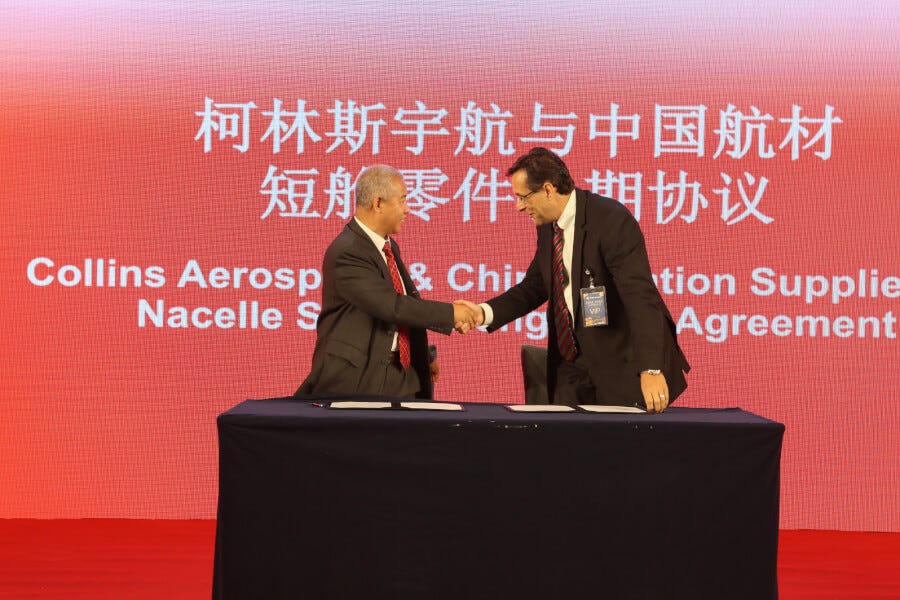





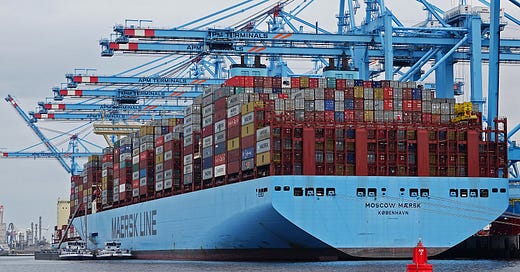

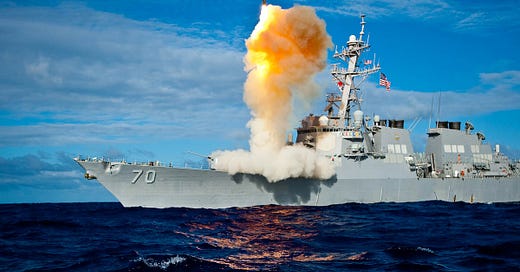



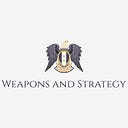
I wonder if it is worth mentioning that secretary of defense Lloyd Austin was on the board of directors of Raytheon before assuming his cabinet position. At least some of the massive number of events in question took place while he was a director. The seemingly light weight investigation and response took place while he was secretary of defense. I guess there is no connection. No need to look at it in any more detail than has already been released. For starters, who could look at it that isn't already connected to the defense industry, the bureaucracy, the administration or any of the now highly politicized security agencies?
If the Merchants of Death weren't responsible for so much carnage around the world, this would be funny.